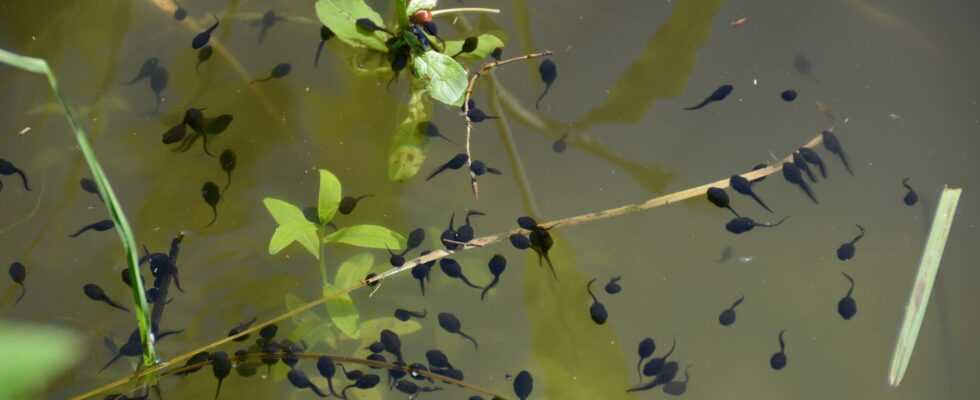The microbiome of humans and animals – those millions of bacteria that settle in and on the body – are indispensable and perform a variety of different tasks. For example, they sharpen the immune system, ensure that otherwise inedible food can be digested, influence performance or subtly change the psyche. In frogs and their tadpoles, the microbiome takes on another unexpected role: The microbes actively help how cold-blooded animals survive heat and cold, reports a team of researchers in the journal Nature Ecology and Evolution.
In an experiment, the scientists wanted to find out how important the microbiome is for the offspring of frogs. To do this, they bred sterile tadpoles of the American green frog Lithobates clamitans, which hatched and grew exclusively in germ-free water, so that the natural colonization of the intestine with the usual microorganisms did not take place. They then observed how stressful environmental changes affected the little frogs.
The reactions to an unusually cold or warm environment were striking: the tadpoles, which were raised aseptically, tolerated neither heat nor cold as well as conspecifics with a healthy microbiome. It was five times more likely that tadpoles without microbes would not survive the heat of a tank heated to almost 30 degrees. In the long run, the animals with a healthy microbiome also coped better with cool water at just under 14 degrees Celsius.
It is still unclear whether conclusions can be drawn from the experiment for tadpoles in nature, says the leader of the study, Samantha Fontaine from the University of Pittsburgh. In any case, it is striking that the tadpoles grew faster without a microbiome; However, this is not the cause of the changed cold and heat tolerance. The gene activity of the animals without intestinal bacteria is noticeably altered: Particularly important enzymes in the mitochondria of the sterilely reared animals work at reduced capacity, so they were not able to break down proteins in the food as well and also swam less actively.
